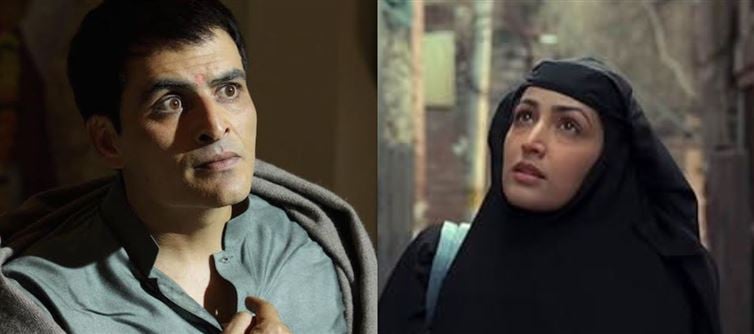
A thriller That Could Have Been Great
The premise is cinematic gold.
A mysterious disappearance in the snow-covered valleys of Kashmir’s Baramulla district.
A boy steps into a magician’s box and vanishes — not as part of an illusion, but for real.
Soon, the DSP’s daughter, investigating the case, disappears too.
A chilling setup.
An eerie, beautiful landscape.
A plot ripe for a psychological thriller with a philosophical heart.
This could have been India’s answer to Prisoners or The Others — a story about grief, disappearance, and the dark unknown.
But what unfolds instead is a propaganda pamphlet dressed as a motion picture.
From Mystery to Manipulation
Somewhere between the script and the screen, the story loses its soul and gains an agenda.
Instead of exploring human fear, loss, or morality, it starts preaching — not subtly, but shamelessly.
The film’s central mystery — why are people disappearing? — unravels into a communal caricature, blaming an entire faith, painting entire communities with suspicion, and turning victims into villains.
It’s not just bad writing.
It’s deliberate distortion.
The tension isn’t psychological. It’s political.
The fear isn’t cinematic. It’s communal.
When Storytelling Becomes Brainwashing
The new-age Sangh playbook for content is simple:
Take a strong concept.
Set it in a politically charged location like Kashmir.
Start with mystery.
End with manufactured hate.
Repeat until bigotry feels like entertainment.
For years, this ideological machinery has learned to camouflage propaganda as patriotism and hate as heroism.
Now, it’s camouflaging it as thrillers.
This isn’t storytelling. It’s strategic emotional engineering — designed to make audiences slowly normalize prejudice.
The Disappearance of Decency
What’s truly “missing” in this story isn’t the boy or the girl — it’s ethics.
The film’s final twist — meant to shock — only leaves you sickened.
Because when the curtain lifts, you realize the real trick isn’t the magic box.
It’s the cinematic sleight of hand that turned tragedy into communal tension, mystery into manipulation, and art into agenda.
It’s not horror. It’s hate with production design.
Jio Studios and the politics of Platforming
Let’s not pretend this is accidental.
The film is produced by Jio Studios, a corporate giant deeply intertwined with power and ideology.
When a company that shapes the nation’s telecom, media, and wallet PLATFORM' target='_blank' title='digital-Latest Updates, Photos, Videos are a click away, CLICK NOW'>digital ecosystem also funds hyper-nationalist narratives, it’s not “content strategy.”
It’s cultural colonization.
OTT platforms were supposed to be the last refuge of creative freedom — the place where stories dared to question the mainstream.
But now, they’ve been domesticated too — turned into echo chambers for soft propaganda, algorithmically optimized for ideological spread.
The Normalization of Hatred
This isn’t just about one film. It’s about a trend that’s quietly poisoning indian storytelling.
Each film like this chips away at nuance, empathy, and plurality — replacing them with suspicion and superiority.
By constantly portraying one community as villainous and another as victimized savior, the narrative gets burned into the subconscious.
The audience stops seeing characters — and starts seeing categories.
That’s not cinema. That’s conditioning.
The master Illusion
The real illusion is this:
While the audience thinks it’s watching a thriller, the thriller is watching them.
It studies what triggers fear, what evokes pride, and then feeds it back — one plotline at a time.
The goal isn’t box office success.
It’s belief engineering.
You walk in expecting entertainment.
You walk out having subconsciously absorbed division.
That’s not a coincidence. That’s design.
Final Word: Art or Ammunition?
cinema was once a mirror to society.
Now, it’s becoming a weapon for ideology.
Every time a film like this hides hate behind the smoke of “mystery,” it chips away at something sacred — our ability to think freely and feel compassionately.
A story about a disappearing boy could have shown us the beauty and pain of Kashmir.
Instead, it made humanity itself disappear.
When a film leaves you angry, not because it was provocative but because it was poisonous — that’s when you know:
This isn’t cinema anymore.
This is propaganda in 4K.




 click and follow Indiaherald WhatsApp channel
click and follow Indiaherald WhatsApp channel